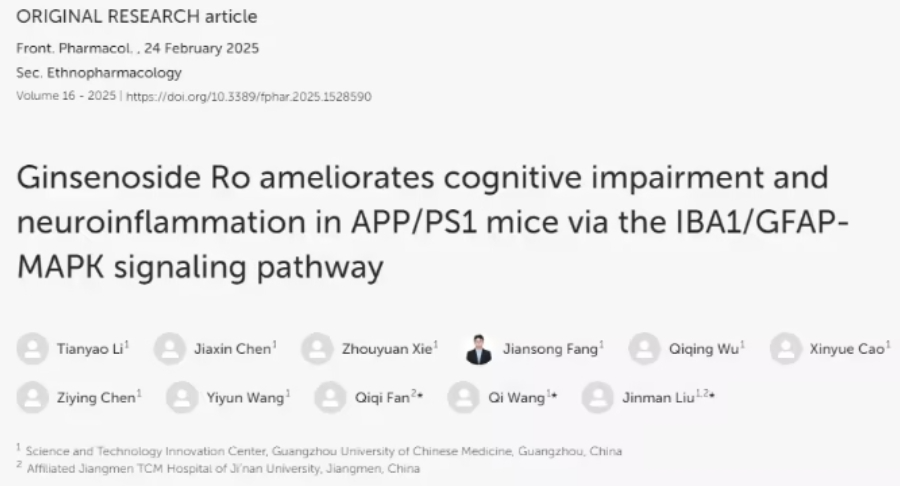Background
Alzheimer’s Disease (AD) is a neurodegenerative disease characterized primarily by gradual memory loss and cognitive decline. With the aging population, the demand for effective treatments for AD is increasingly urgent. The etiology of AD is not fully understood, but known factors include the deposition of Aβ amyloid plaques, neuroinflammation, hyperphosphorylation of tau protein, oxidative stress, endoplasmic reticulum stress, mitochondrial dysfunction, and autophagy. These factors reinforce each other, forming a vicious cycle that ultimately leads to neuronal death and the progression of AD.
Beta-amyloid (Aβ) is the core component of neuroinflammatory plaques and is a proteolytic product of amyloid precursor protein (APP). Aβ-induced neuroinflammation and neuronal apoptosis accelerate the pathogenesis of AD. Since 1992, the amyloid cascade hypothesis has been a key explanation for the etiology and pathogenesis of AD. Aβ exhibits dual pathological effects: directly damaging neurons and inducing neuroinflammation, and agents that can simultaneously regulate neuronal apoptosis and alleviate neuroinflammation caused by Aβ neurotoxicity represent promising candidates for AD treatment.
Due to the incomplete understanding of the pathogenesis of AD, many drugs currently used in clinical practice are ineffective or have serious side effects. In recent years, Traditional Chinese Medicine (TCM) has played an increasingly important role in treating various diseases. Ginseng is known as the “King of Herbs” and is a perennial herb with anti-aging, anti-inflammatory, and anti-apoptotic effects. Numerous studies have shown that ginseng and ginsenosides are effective in treating neurodegenerative diseases. Various ginsenosides have demonstrated significant clinical efficacy in improving AD. Through network pharmacology, four ginsenosides related to the pathogenesis of AD were pre-screened, and ginsenoside Ro showed good therapeutic effects in vitro. However, the exact mechanism remains unclear and requires further validation using APP/PS1 mice to elucidate the molecular mechanisms of ginsenoside Ro in treating AD.

Methods
This study divided male APP/PS1 transgenic mice into five groups, administering ginsenoside Ro or ginseng for one month. Behavioral tests (including the Open Field Test (OFT) and Morris Water Maze (MWM)) were conducted to assess cognitive function and anxiety. To evaluate Aβ deposition, neuronal apoptosis, neuroinflammation, and the MAPK pathway, various techniques such as Thioflavin T staining, Nissl staining, immunofluorescence, Western blotting, and qRT-PCR were employed for analysis.
Results
Ginsenoside Ro significantly improved cognitive function in APP/PS1 mice, reduced anxiety, decreased Aβ deposition, improved cortical neuronal apoptosis, regulated the expression of pro-apoptotic proteins Bax and Caspase 3, increased the expression of the anti-apoptotic protein Bcl-2, reduced IBA1-positive microglia and GFAP-positive astrocytes, lowered pro-inflammatory cytokines, increased the anti-inflammatory cytokine IL-10, and decreased the phosphorylation levels of p38 and JNK in the MAPK pathway, thereby alleviating neuroinflammatory responses.
Conclusion Ginsenoside Ro exhibited significant neuroprotective effects in the APP/PS1 mouse model of AD. By enhancing cognitive function, reducing Aβ deposition, and regulating neuroinflammation and neuronal apoptosis, these findings provide strong support for further research on ginsenoside Ro as a potential therapeutic agent for AD. The regulation of the IBA1/GFAP-MAPK pathway appears to be a key mechanism underlying the beneficial effects of ginsenoside Ro, offering promising targets for future therapeutic interventions.

